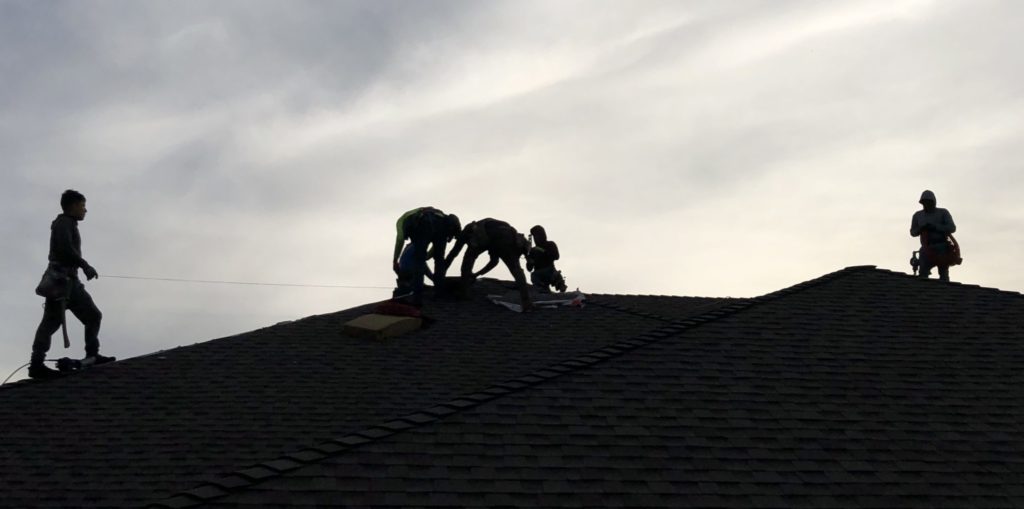
Don’t trust your contractor until you’ve done these 6 things
Hiring a contractor can often be a tense, stressful decision for homeowners. Is the contractor trustworthy? Do they know what they are doing? Is my money and property safe with them? How do you know who you can trust? While there is no foolproof method for selecting the perfect contractor every time, there are things you can do to help make sure you are making a wise decision with who you are hiring.
- Check the Contractor’s Google profile. Do they have recent positive reviews? What do those reviews say? How about bad reviews? Companies with large amounts of reviews will often have a negative review or two. This isn’t always a red flag. Even the best contractors won’t always be able to satisfy every customer. Take a look at those negative reviews and ask yourself if they seem warranted. And how did the company respond to the negative review? Were they defensive and condescending? Or understanding and reasonable in their response? Google profiles will also often showcase recent work from the contractor as well as share information about the various services and products offered. And here’s a look at our AMERICANA ROOFING GOOGLE PROFILE.
- Check with the Better Business Bureau. Not every contractor will have a BBB profile, and not every contractor that has a BBB profile will be accredited. An accreditation signifies that the contractor has a BBB membership. Here is our AMERICANA ROOFING BBB PROFILE. However, companies that do have a BBB profile will have a rating, with A+ being the highest. And if any recent complaints have been made against the company with the BBB, they will be listed along with the result. Additionally, the contractor’s profile will show ownership information of the company, time in business, registered address, and phone number.
- Check for licenses. In Texas most contractors do not need a license to operate, as the state does not have a licensing program for most trades. The exceptions to this are electricians, plumbers, HVAC contractors and a few other specialty trades (security, fire sprinkler, irrigation, and a few others). Despite the need for licensing and the reputation of the industry, roofing contractors in Texas do not need a license to operate. There is however a voluntary licensing program in Texas that is administered by the Roofing Contractors Association of Texas (RCAT). RCAT is a statewide trade association of roofing and waterproofing contractors. This group of professionals collectively represents the voice of the roofing and waterproofing industry in Texas. RCAT is committed to promoting ethics, education and image of the Texas roofing industry through the actions of its members. To be licensed through RCAT, the principal owner of the roofing company must have been in business for at least two years, must carry at least $300,000 in general liability insurance, must pass exams in business and safety knowledge and in commercial and/or residential roofing knowledge, and must meet additional qualifications. Americana Roofing participates in this voluntary licensing program and holds COMMERCIAL & RESIDENTIAL ROOFING LICENSE #03-0592.
- Check for insurance. There are several types of insurance that are commonly carried by reputable contractors. General Liability insurance protects the contractor in the event their work led to bodily injury or property damage. Workers Compensation insurance pays for benefits like medical care to treat employees who are injured or become ill because of their job. Auto insurance, including “Hired and Non-Owned” coverage protects the contractor in the event of an auto accident involving their owned vehicles as well as vehicles not owned but being operated for business, like an employee’s vehicle or a leased vehicle. Americana Roofing carries General Liability, Workers Compensation and Auto coverage that is available upon request. Payment and Performance Bonds are another type of insurance sometimes required on individual large commercial projects but not typically required on residential jobs. A P&P bond ensures payments for materials and workers and makes sure the work is done to specifications and the contract.
- Check for references. The Better Business Bureau and Google reviews can be very insightful when evaluating a contractor, but have you checked with your friends and neighbors? A good referral from a trusted neighbor is often a great indicator that you’ve selected a good contractor. And multiple referrals are even better! Additionally, search social media like Next Door and local Facebook community pages. If the contractor has a record of underperforming, there will certainly be some posts about the owner’s bad experience.
- Put it in writing! Unfortunately, the days of handshake deals are mostly gone. Especially on larger and more detailed projects, it is important to put all the details in writing. What exactly is the work being done? What materials will be used? How much will it cost? When is payment due? And what is the warranty? These are all details that once defined, will make the project so much smoother for both the owner and the contractor.
The bottom line on selecting a contractor is DO YOUR HOMEWORK! If you will follow the 6 steps above, you will be far more likely to make the correct hire the next time you need a contractor!
